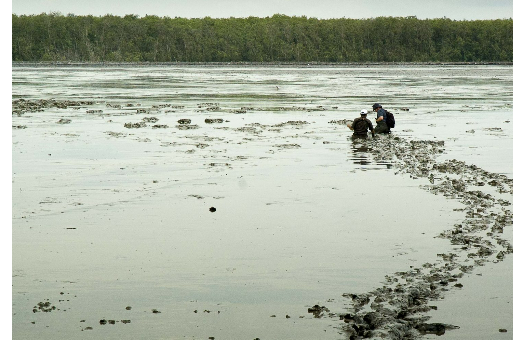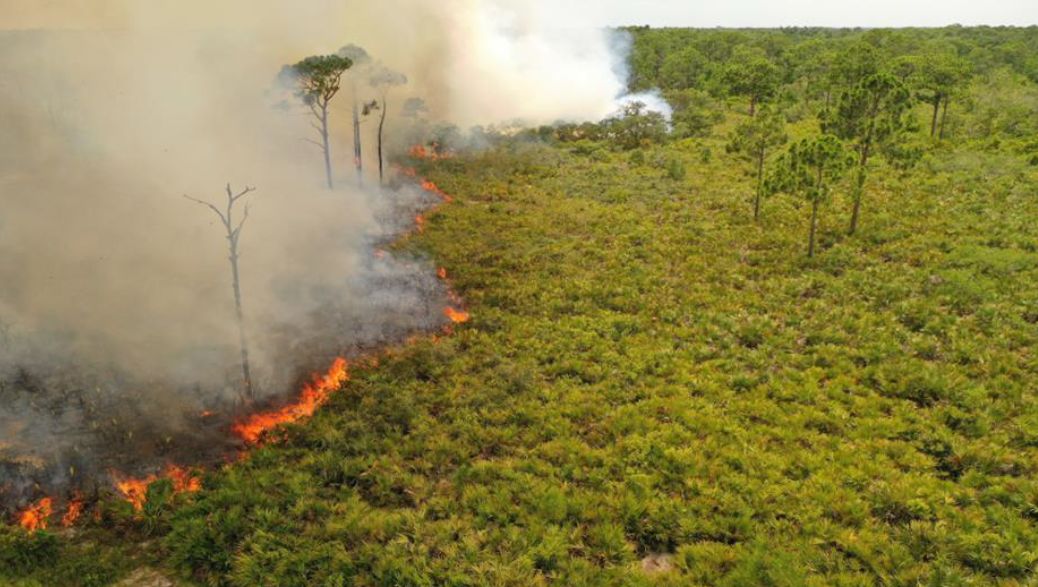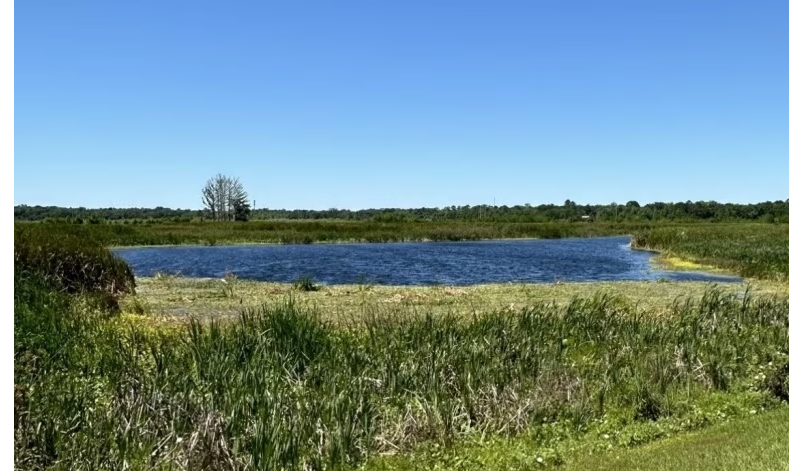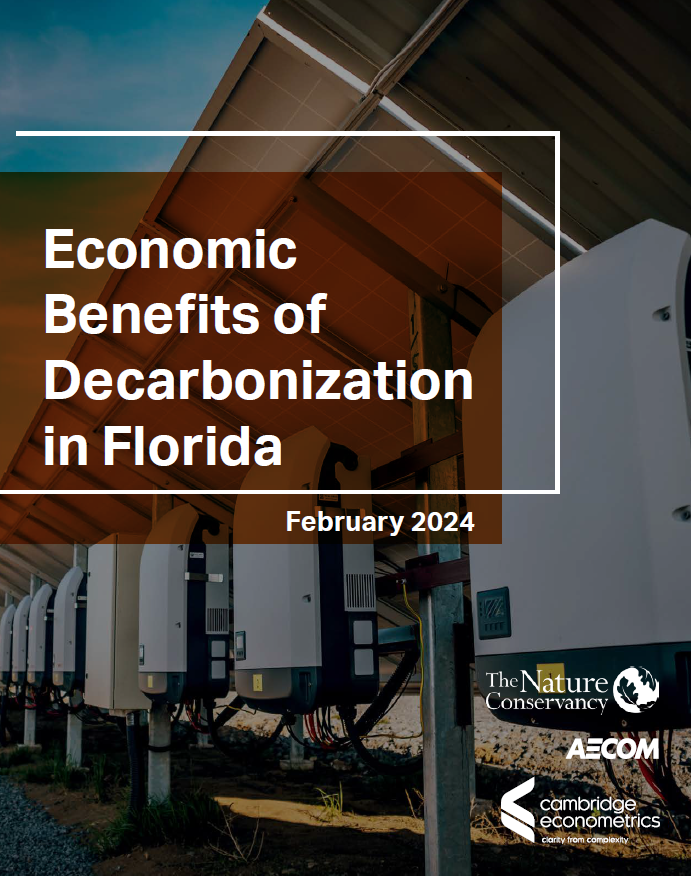Headline News
 Mud holds profound insights into how our planet operates. It serves as a linchpin in how carbon moves around our planet. It’s a key player in regulating Earth’s climate by storing and cycling carbon. Mud also acts as a repository for organic carbon, playing a pivotal role in its sequestration and burial across landscapes.
Mud holds profound insights into how our planet operates. It serves as a linchpin in how carbon moves around our planet. It’s a key player in regulating Earth’s climate by storing and cycling carbon. Mud also acts as a repository for organic carbon, playing a pivotal role in its sequestration and burial across landscapes.
According to a comprehensive new study out in Nature Geosciences, University of Florida Geological Sciences Professor Thomas Bianchi and his colleagues document that mud, and the tremendous stores of organic carbon it holds within its matrix, is shifting where it is and isn't at a global scale due to human activity and climate change. These shifts have tremendous implications for the fate and carbon storage benefits of coastal wetlands, including salt marshes and mangrove forests, and as well as the rich biodiversity that is sustained by the world's tidal mudflats.
 Florida is ground-zero for climate change impacts as our natural and human communities are forced to grapple with increasing heat, flooding, sea level rise, and wildfire risk.
Florida is ground-zero for climate change impacts as our natural and human communities are forced to grapple with increasing heat, flooding, sea level rise, and wildfire risk.
Archbold approached Florida Atlantic University to assess overlaps between land conservation in the Florida Wildlife Corridor and the resilience of the state’s nature and people to advancing climate change.
Archbold’s conservation program is using the Florida Wildlife Corridor and Climate Change Report’s results to credibly motivate the Corridor’s protection.
The report's executive summary is available here.
 Companies that proactively manage climate risks boost their valuations, while those with a passive stance are discounted in the equity market, according to new research.
Companies that proactively manage climate risks boost their valuations, while those with a passive stance are discounted in the equity market, according to new research.
A pioneering study from the University of Florida has quantified corporations’ exposure to climate change risks like hurricanes, wildfires, and climate-related regulations and the extent to which climate risks are priced into their market valuations. The research also exposes a costly divide – companies that proactively manage climate risks fare much better than those that ignore the threats.
The "Corporate Climate Risk: Measurements and Responses" is published in the Review of Financial Studies.
The research team also shared their climate risk measures at www.corporateclimaterisk.com
You can read more here.
 As Florida faces an influx of people and rapid land development, there are growing needs when it comes to effectively protecting critical landscapes.
As Florida faces an influx of people and rapid land development, there are growing needs when it comes to effectively protecting critical landscapes.
Researchers at the University of Florida Center for Coastal Solutions and Center for Landscape Conservation Planning recently developed a tool to help address some of those needs. The Land Conservation Optimizer Tool helps identify optimal conservation lands in Florida that could help improve water quality if they are protected, according to the UF Center for Coastal Solutions.
 The Nature Conservancy (TNC) in Florida, with the expertise of AECOM and Cambridge Econometrics, has published a first-of-its kind economic study on the impacts of decarbonizing Florida’s economy: Economic Benefits of Decarbonization in Florida. The report looks at two decarbonization scenarios—achieving a power grid with net zero emissions by 2035 (Net Zero Power System) and achieving net zero emissions economy-wide by 2050 (Net Zero Economy). The decarbonization of our economy—reducing greenhouse gas emissions (including carbon dioxide) in manufacturing, transport, energy and other parts of our economy—can drive vast job growth and prosperity for Florida. Decarbonization will expand and create higher-paying jobs, offering opportunities for workers of all skills and education levels, as well as lower consumer costs. This report was built on the Getting to Neutral report that the FCI produced previously.
The Nature Conservancy (TNC) in Florida, with the expertise of AECOM and Cambridge Econometrics, has published a first-of-its kind economic study on the impacts of decarbonizing Florida’s economy: Economic Benefits of Decarbonization in Florida. The report looks at two decarbonization scenarios—achieving a power grid with net zero emissions by 2035 (Net Zero Power System) and achieving net zero emissions economy-wide by 2050 (Net Zero Economy). The decarbonization of our economy—reducing greenhouse gas emissions (including carbon dioxide) in manufacturing, transport, energy and other parts of our economy—can drive vast job growth and prosperity for Florida. Decarbonization will expand and create higher-paying jobs, offering opportunities for workers of all skills and education levels, as well as lower consumer costs. This report was built on the Getting to Neutral report that the FCI produced previously.
Read the full press release here.












